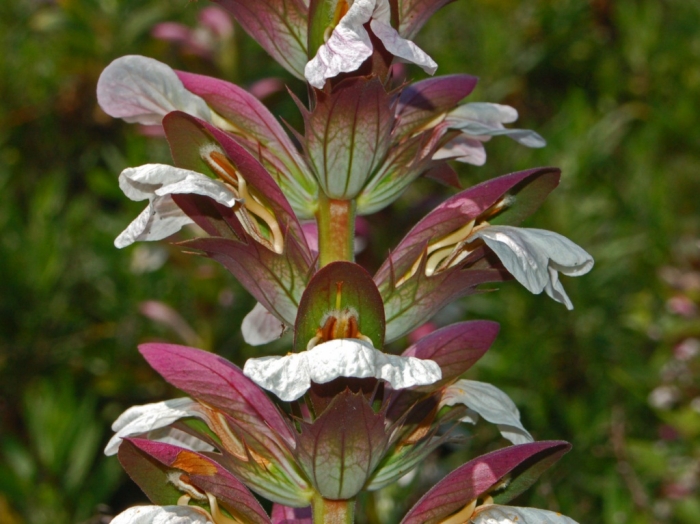Bear’s Breeches
(Acanthus mollis)
Bear’s Breeches (Acanthus mollis)
/
/

Hectonichus
CC BY-SA 3.0
Image By:
Hectonichus
Recorded By:
Copyright:
CC BY-SA 3.0
Copyright Notice:
Photo by: Hectonichus | License Type: CC BY-SA 3.0 | License URL: https://creativecommons.org/licenses/by-sa/3.0 | Uploader: Hectonichus | Publisher: Wikimedia Commons | Title: Acanthaceae_-_Acanthus_mollis-3.JPG | Notes: {{Information |Description={{fr|1=''' Érable à feuille de vigne''' ''(Acer cissifolium)'' * Position exacte : (S37) ** [[:fr:Arboretum Robert Lenoir|Arboretum Robert Lenoir]] - [[:fr:Rendeux|Rendeux]] ([[:fr:Belgique|Belgique]]). }} {{en|1=''' [[:w: |












































































Estimated Native Range
Summary
Acanthus mollis, commonly known as bear’s breeches, is a perennial herb native to the Mediterranean region, specifically found in scrub and woodlands. It is characterized by its glossy, deeply lobed leaves and tall flower spikes with purplish and white flowers that bloom in early summer. The plant typically reaches a height of 3-5 feet (0.9-1.5 meters) with a similar spread. The flowers are showy and add architectural interest to garden borders.
Bear’s breeches are valued for their striking foliage and flowers, which can add a classical touch to garden designs, reminiscent of the plant’s frequent depiction in ancient Greek and Roman art. It is used in borders, as a focal point, or in cottage gardens. Acanthus mollis prefers well-drained soil and can tolerate a range of light conditions from full sun to part shade. While it is drought-tolerant once established, it benefits from regular watering during prolonged dry periods. It can spread by rhizomes and self-seeding, which may become problematic if not managed.CC BY-SA 4.0
Bear’s breeches are valued for their striking foliage and flowers, which can add a classical touch to garden designs, reminiscent of the plant’s frequent depiction in ancient Greek and Roman art. It is used in borders, as a focal point, or in cottage gardens. Acanthus mollis prefers well-drained soil and can tolerate a range of light conditions from full sun to part shade. While it is drought-tolerant once established, it benefits from regular watering during prolonged dry periods. It can spread by rhizomes and self-seeding, which may become problematic if not managed.CC BY-SA 4.0
Plant Description
- Plant Type: Herb
- Height: 3-4 feet
- Width: 2-3 feet
- Growth Rate: Slow
- Flower Color: White, Pink, Purple
- Flowering Season: Spring, Summer
- Leaf Retention: Semi-Deciduous
Growth Requirements
- Sun: Full Sun, Part Shade
- Water: Medium
- Drainage: Medium
Common Uses
Bee Garden, Border Plant, Deer Resistant, Drought Tolerant, Groundcover, Potted Plant, Rabbit Resistant, Rock Garden, Showy Flowers
Natural Habitat
Mediterranean scrub and woodlands
Other Names
Common Names: Bear’s Foot Plant, Artist’s Acanthus, Oak-Leaf Bear’s-Breeches, Sea Dock, Pracht-Akanthus, Acanto, Acanthe Molle, Mjukakantus, Acanto-Grego, Sea Holly
Scientific Names: , Acanthus mollis, Acanthus latifolius, Acanthus mollis subsp. mollis, Acanthus mollis subsp. platyphyllus, Acanthus longifolius, Acanthus spinulosus, Acanthus niger, Acanthus platyphyllus, Acanthus lusitanicus
GBIF Accepted Name: Acanthus mollis L.